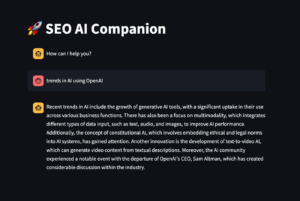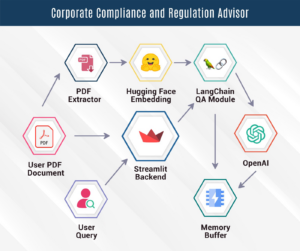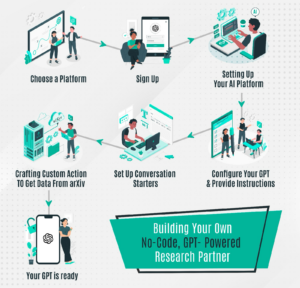In the fast-changing world of technology, ai business transformation is key to innovation. It changes how companies work and compete. As firms try to use the power of artificial intelligence, they must answer important questions. Are you prepared to explore the potential of ai in your company? This blog gives vital details about what businesses should consider when starting their ai journey.
From creating a strong ai strategy to checking your data quality, there are challenges to face. We will look at the important parts that can decide the fate of your ai initiative. You will discover how to build a sound ai governance system and evaluate the return on investment of your technology. By the end of this article, you will have what you need to take your company through a successful ai transformation, increasing value and reducing risks effectively.
Key Questions for AI Business Transformation
When organizations begin the AI business transformation process, knowing the main driving force behind AI initiatives is key. Companies must ask fundamental questions that shape their AI strategies. Proper questions can lead to great competitive advantages. AI innovations appeal to 74% of executives who believe they enhance business operations.
First, leaders need to assess the specific goals for AI. What problems need solving? What objectives do we aim to achieve? Defining these outcomes helps direct the AI strategy and aligns it with broader business goals. This focus helps companies plan thoroughly.
Additionally, firms must evaluate readiness for AI integration. Are current systems ready to support AI tech? Is the data infrastructure adequate? This is crucial because 39% of organizations identify poor data quality as a barrier to successful AI rollout. Getting data right is critical for effectiveness.
There is also the question of ethics in AI use. How can we keep our AI initiatives fair? What makes a model accountable? Creating an ethical framework builds trust with stakeholders and reduces risks of biased AI systems. This is important for long-term sustainability.
It’s crucial to discuss AI’s effect on the workforce. What skills will be vital in an automated workplace? How to upskill workers? A strategic focus on employee development matters, as 70% employees fear losing jobs to AI changes. Preparation of workers eases transitions.
Finally, firms should determine how to measure AI initiative success. Which key performance indicators will be relevant? How do these metrics match business performance? Clear metrics help assess return on investment and whether AI truly enhances business value.
In summary, answering these questions can greatly affect AI business transformation outcomes. By putting emphasis on strategic alignment, data readiness, ethics, workforce considerations, and success metrics, companies set the groundwork for effectively using AI technology. This effort is crucial for later defining a strategy that raises overall business performance.
Defining an AI Strategy
Achieving ai business transformation requires an effective AI strategy. This strategy needs to align with business goals. It ensures AI initiatives support the company’s vision and aren’t isolated. A good alignment drives better results in operations.
There are key components for an AI strategy. First, clearly define the outcomes. Organizations must say what they want from AI, like improving efficiency or boosting customer engagement. Next, assess current capabilities to find skill gaps. This helps to integrate AI into processes more smoothly.
The technology stack affects AI strategy too. Choosing suitable AI tools that meet organizational needs is key. Moreover, organizations should create metrics to measure AI success. Using KPIs tied to performance enables tracking progress. Adjustments can then be made as needed.
Leadership is critical for a successful AI strategy. Strong executive support builds a culture of innovation. Leaders must decide on AI direction and push these projects at all levels. Their involvement attracts buy-in from stakeholders, impacting the success of ai solutions.
Also, continuous evaluation of strategy is essential. Technological and market changes happen fast. Businesses must monitor AI advancements. This helps adjust strategies to satisfy customer needs and face competition.
In summary, a strong ai strategy is necessary for ai business transformation. This guides the use of technologies. It maximizes value and supports growth through the transformation journey. As companies move forward with AI, checking data quality and integration tasks becomes vital for success.
Assessing Data Quality and Integration Needs
Quality data plays a vital role in AI business transformation. It is key for effective AI initiatives. Quality data impacts algorithm accuracy, insights from checks, and decision-making throughout a company. An alarming 60% of companies have problems with data quality that affect their AI projects.
To assess data quality, organizations need to organize their evaluations. A data audit helps find existing datasets. It also shows sources and current uses. This audit should ensure completeness, consistency, timeliness, and accuracy. Using profiling tools can give detailed insights into data attributes. It also spot discrepancies needing fixings.
After assessing data quality, organizations should plan strategies for data integration. It is necessary for various data source connections to allow AI models to give satisfactory results. A centralized management platform helps manage this. It provides real-time updates and an accurate single source of truth. Also, using APIs and data standards makes access easier for departments and systems, guaranteeing a synchronized environment.
When businesses start AI transformation, evaluating data quality and integration needs is critical. This process affects the success of AI implementations. Addressing these elements strengthens the base required for AI to grow. It helps in dealing with potential challenges faced during the transformation phase.
Moving ahead, it’s essential to understand the limits of AI integration. Acknowledging hurdles in AI business transformation prepares businesses for better strategy execution.
Challenges in AI Business Transformation
Organizations face many difficulties in AI business transformation. One big issue is figuring out the main hurdles in AI use. Many businesses find it hard to add AI into their work processes, often clashing with company goals. This disconnect can waste resources and stop progress.
Another main point for successful AI adoption is team readiness. Moving to AI operations needs employees who can work with these new tools. However, 51% of firms say their workers don’t have the skills to use AI properly. This lack can make workers resist change. They may feel unsure about AI technology. Companies must address this to build an innovative culture that supports AI.
Worries of employees about AI can also create hurdles. Many fear losing their jobs to automation, leading to distrust in AI plans. Firms need to create trust in AI systems. Open talks about AI benefits can help calm fears and create trust around job roles. Supportive environments are key to effective AI adoption.
In short, changing to an AI-centered business means dealing with issues like tech addition, workforce training, and worker trust in AI. As companies work through these hurdles, knowing them is key to forming smart strategies for ongoing success.
With a clear view of challenges on the table, businesses should focus on creating frameworks for AI governance. It’s essential for fair and smooth implementation of AI technologies.
AI Governance Framework
Building an AI governance framework is a key part of ai business transformation. This framework ensures AI systems in an organization are effective, ethical, and follow regulations. Organizations that focus on governance can reduce risks while maximizing their AI efforts. This approach is crucial.
Important parts of an AI governance framework include clear ethical guidelines, compliance measures, and governance structures. These parts help manage complexities from AI technologies, especially compliance issues. Most businesses face a difficult regulatory landscape, with 74% stating they find it tougher to comply with AI regulations. A strong governance structure is necessary for success in ai business transformation.
Additionally, handling AI-related risks effectively supports a successful ai business transformation. This means organizations should have procedures to assess operational and reputational risks tied to AI deployment. Companies should use strategies like consistent monitoring of AI systems and regular reviews of AI ethics. Engaging with stakeholders can provide diverse insights. Creating a culture of transparency and accountability helps address ethical and compliance issues.
The prior section pointed out that AI business transformation has many challenges. A governance framework lays the groundwork for building trust with stakeholders. This way, AI can help achieve positive business goals. By putting fundamental governance principles in place, companies find it easier to understand the ROI from AI initiatives.
ROI and Business Value of AI Business Transformation
AI business transformation can yield significant returns on investment and add great business value. To measure the ROI from AI efforts, businesses should use different methods that fit their goals and objectives. One common method is calculating savings from automation and increased efficiency.
Organizations also track more revenue generated by AI products and better customer experiences. These elements serve as key performance indicators of AI effectiveness. Finding value-generating use cases is essential for maximizing the benefits. For example, AI in predictive analytics for inventory can lead to a 20% cut in stockouts and overstock. Also, firms using machine learning for customer segmentation can spot a 30% rise in marketing effectiveness.
Recognizing opportunities where AI can resolve business challenges or give competitive edges is crucial. Best practices for measuring AI’s impact on business include setting clear metrics and KPIs before deploying solutions. By defining which indicators signal success, firms can check both quantitative and qualitative impacts of AI.
Regular reviews based on collected data prove necessary. This process helps ensure AI initiatives stay relevant and continue generating value over time. For instance, companies re-evaluating their AI models routinely may more easily respond to market changes, making operations agile.
To sum up, integrating AI into business practices enhances efficiency and propels revenue growth. This creates a cycle of continuous improvement. As organizations start their AI business transformation, they must think about leveraging technologies to get meaningful ROI and lasting value. Moving smoothly from governance frameworks to utilizing AI tools will maximize benefits from AI business transformation.
Utilizing AI Tools and Technologies
Businesses aiming for AI business transformation must choose tools wisely. Different AI tools are available in the market. These tools have features designed for various business needs. They often offer pre-trained models. User-friendly interfaces help companies integrate AI easily. No need for deep technical skills.
Low-code and no-code applications are gaining popularity. These platforms let non-technical users create and deploy AI applications quickly. This decrease the need for IT professionals. By 2024, 65% of all app development will be low-code. This is a big shift. It allows teams to innovate rapidly. They can prototype AI solutions easily, thus speeding up AI business transformation.
Though off-the-shelf tools and low-code platforms have advantages, many firms consider custom AI solutions. Custom solutions can utilize unique data and proprietary algorithms. This aligns better with specific operational needs. Yet, creating these solutions needs a clear understanding of goals. Knowledge of data infrastructure is crucial. Long-term expertise is required for these initiatives.
When selecting AI tools, organizations should see how these fit broader operational strategies. Alignment ensures AI initiatives can boost efficiency. Additionally, they should be adaptable. This flexibility supports changes in business needs. Companies must navigate AI tools carefully. This ensures a solid foundation for successful AI business transformation.
Conclusion
We looked at ai business transformation and seen that it need careful thought of key parts. Defining good AI strategy, checking data quality, and building governance framework are all important. Understanding ROI matters too. Each part is important for success in AI integration.
Your action steps are clear: think about what we shared, see how ready you are for an AI-led approach, and start making your AI strategy. A rich world of ai business transformation awaits. You must keep up to be successful in the future. Every big change starts with a smart question. So ask the right questions.
In the end, using AI is more than a trend. It’s a needed step for businesses that want to grow. Let your curiosity lead. See how it opens doors for change and boosts efficiency in your work. Embrace ai business transformation for better future.
About AI Product Accelerator
AI Product Accelerator offers a structured 12-week program designed to help aspiring and experienced AI entrepreneurs build and launch valuable AI products.
This platform is essential for those looking to transform innovative AI concepts into viable business solutions, providing comprehensive coaching, practical insights, and a robust community of support.
Join us today and take the first step towards launching your AI product!




